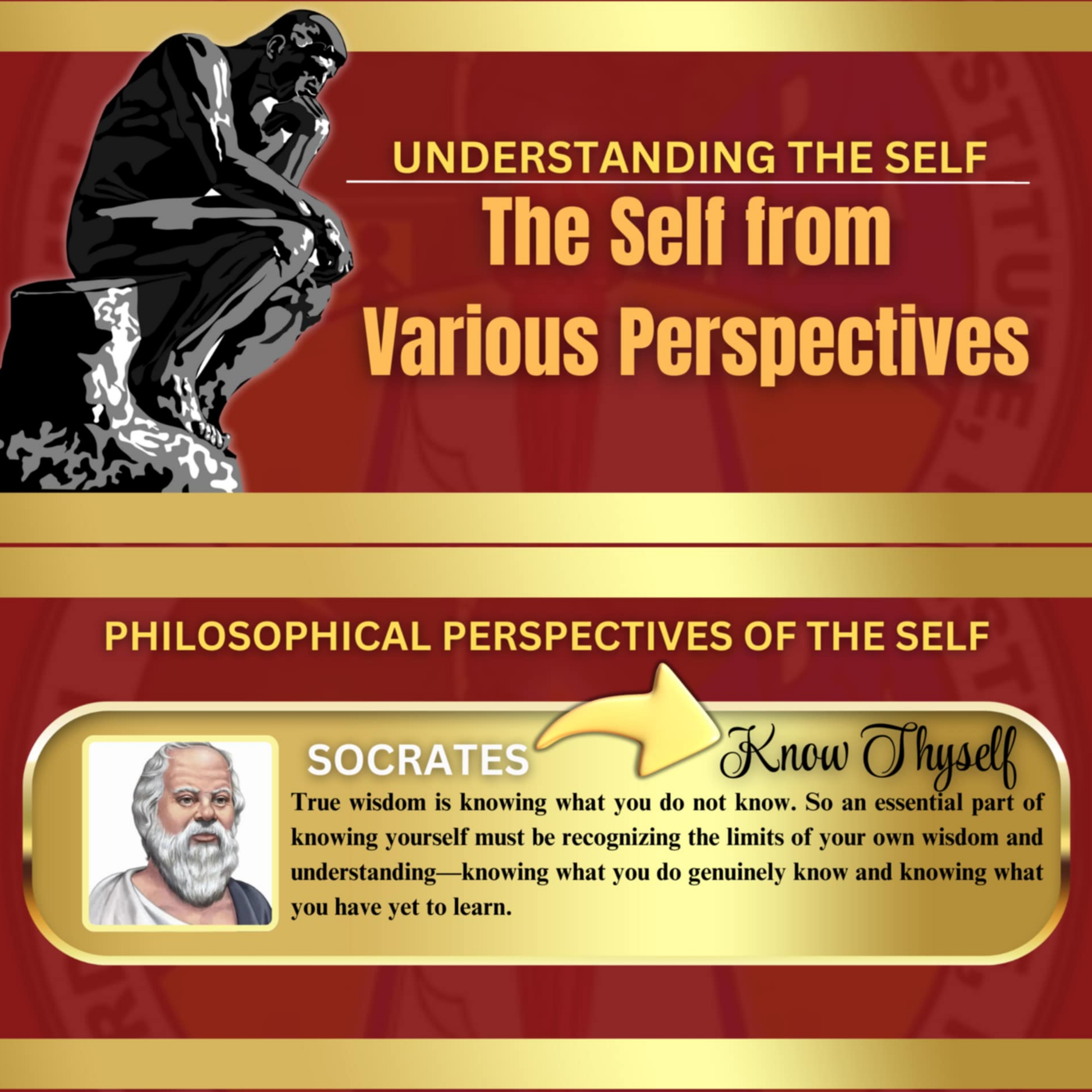What does Socrates mean by 'Know Thyself' in relation to understanding the self?

Understand the Problem
The question is referencing philosophical perspectives on understanding the self, specifically citing Socrates' idea of 'Know Thyself,' which emphasizes the importance of self-awareness and recognizing one's limitations in knowledge.
Answer
Self-awareness and recognizing one's knowledge limits.
Socrates' 'Know Thyself' emphasizes self-awareness and recognizing the limits of one's knowledge. It involves understanding one's character and wisdom, and it is foundational for acquiring further knowledge.
Answer for screen readers
Socrates' 'Know Thyself' emphasizes self-awareness and recognizing the limits of one's knowledge. It involves understanding one's character and wisdom, and it is foundational for acquiring further knowledge.
More Information
Socrates believed that true wisdom comes from recognizing one's ignorance, emphasizing the importance of self-reflection and understanding one's own shortcomings and abilities.
Tips
A common mistake is to assume 'Know Thyself' suggests complete self-understanding, whereas Socrates meant recognizing one's own ignorance and limitations.
Sources
- Socrates and the Precept 'Know Yourself' - cambridge.org
- The Philosophy of Self-Knowledge - UConn Today - today.uconn.edu
- What did Socrates mean by the phrase 'Know Thyself'? - eNotes - enotes.com
AI-generated content may contain errors. Please verify critical information